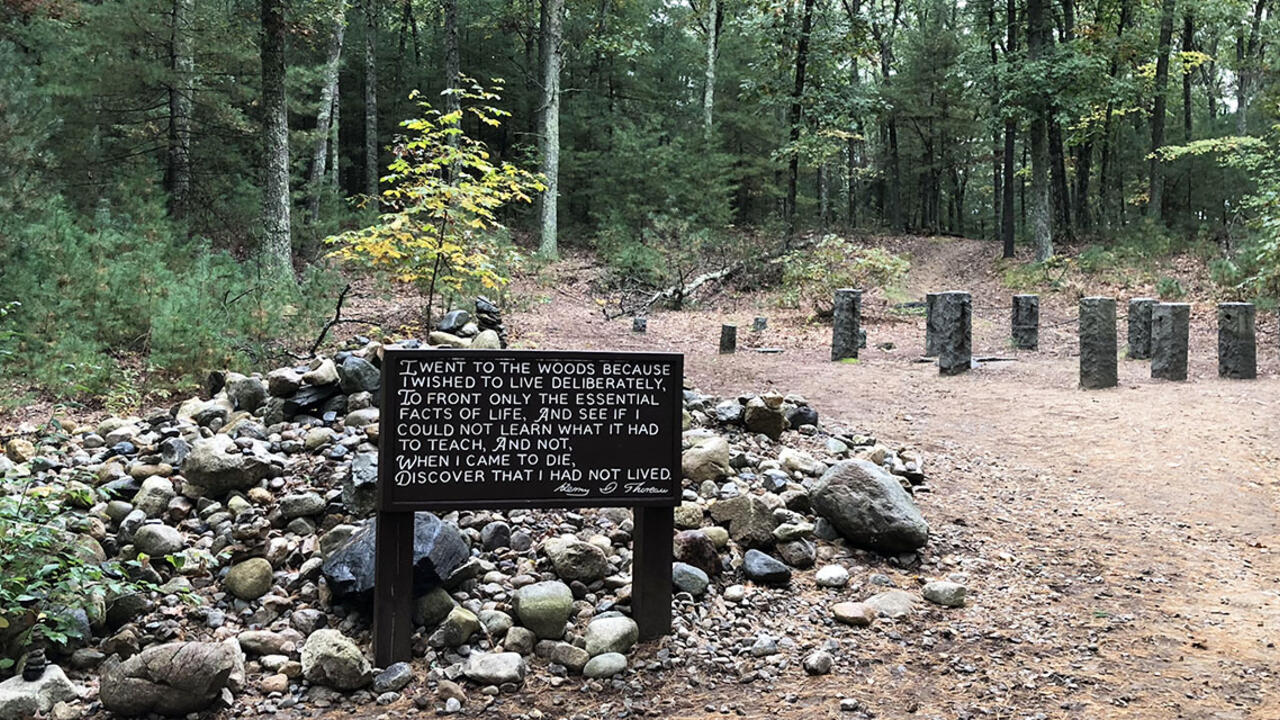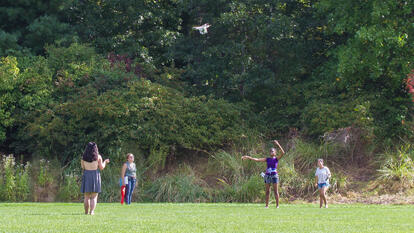Two Students Awarded 2019 Stanford Calderwood Prizes in Public Writing

Wellesley has announced the 2019 winners of the Stanford Calderwood Prizes in Public Writing: Ali Saueressig ’19 for social sciences and Sydney Hopper ’19 for humanities.
The awards recognize students who have written exceptional papers in a Calderwood Seminar in Public Writing. These seminars teach students to communicate knowledge of their discipline and complex arguments when writing for a general audience. This year, Wellesley offered a record 12 Calderwood seminars, including four new ones, and enrolled 125 students.
Hopper’s paper, written for the ENG 316: Dead Poetry Society seminar, looks at how the Boston area and Concord, Mass., have catered to the growing demand for literary tourism. She examines several sites that are popular with fans of transcendentalist literature, such as the Old Manse (home of Nathaniel Hawthorne and Henry David Thoreau), the Concord Museum, and Walden Pond State Reservation. Hopper, a Russian area studies major, said she hopes her paper can help fans and academics alike navigate these important sites.
“I pictured this being published in a travel magazine or local newspaper as a feature article,” Hopper said. “I wanted a quick and accessible piece that would inspire people to see the relevance of historic authors today.”
Saueressig, an environmental studies and political science major, wrote her paper for POL1 333: Perspectives on U.S. Politics; it’s an op-ed in which she examines the funding crisis among rural schools, specifically in her home state of Minnesota. “I was incredibly inspired by the teacher activists striking across the country,” said Saueressig, who comes from a family of educators. “I wanted to reach Minnesotans, especially Minnesotans from non-rural areas, to talk about the adverse conditions rural students and schools often face because of underfunding.”
As many schools in the Midwest have been forced to adopt a four-day week due to budget cuts, Saueressig argues that this extreme deficit in funding means that “adequately compensating teachers is often out of the question,” prompting qualified teachers to seek work elsewhere and in turn causing these schools and their students to suffer. Saueressig writes that significant increase in funding is needed to restore quality to these rural schools.
“All nominations to receive a Calderwood prize this year were compelling examples of public writing and the product of a great deal of reading, research, thinking, writing, and revising,” said David Lindauer, the Stanford Calderwood Professor of Economics and faculty director of the Calderwood Seminars in Public Writing. “Sydney Hopper’s essay stood out as writing that was natural yet authoritative; the discussion well-paced and cohesive; and the piece educational and eminently useful. Ali Saueressig’s essay is distinguished by its focus, and does a superb job of articulating what the issue is and why it matters.”
“I have been lucky enough to take two Calderwood seminars at Wellesley, in both of my majors—political science and environmental studies,” Saueressig said. “I truly believe these two courses are the most valuable ones I’ve taken in my entire time here.”
“The Calderwood program has given me the confidence to take risks as a writer,” said Hopper. “Writing multiple drafts and workshopping with my professor and peers showed me that there is always room for improvement in every piece, if not every paragraph and sentence.”



